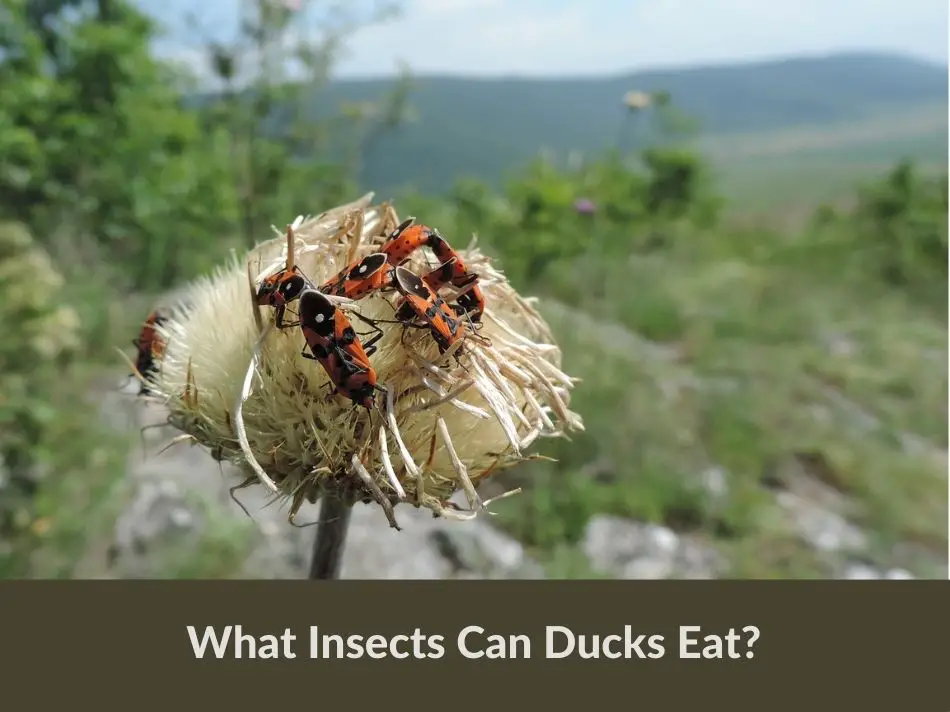In the fascinating world of avian diets, ducks hold a unique place with their diverse and adaptable feeding habits. This article aims to unravel the complex relationship between ducks and the insects they consume, highlighting the types of insects that form part of their regular diet.
Understanding what insects ducks eat is not just a matter of curiosity for bird enthusiasts and duck keepers, but also crucial for maintaining the health and well-being of these birds. This exploration provides insights into how ducks contribute to the ecosystem through their feeding behaviors and the impact of their diet on their health and habitat.
Whether you’re a seasoned ornithologist, a backyard duck keeper, or simply someone fascinated by the natural world, this article offers a comprehensive look into the insect diet of ducks, revealing surprising facts and practical tips.
Insects That Ducks Can Safely Eat
Below is a list of many insects that ducks can enjoy, which can serve as a great addition to their diet.
- Cockroaches
- Stink Bugs
- Caterpillars
- Crickets
- Mosquito Larvae
- Ants
- Snails
- Spiders
- Slugs
- Wax Worm
- Earthworm
- Dragonflies
- Bees
- Wasps
- Ticks
- Nightcrawlers
- Cicadas
- Maggots
- Beetles
Protein Intake from Insects
Insects are a vital part of a duck’s diet, providing high-quality protein crucial for their growth and health. Ducks consume various insects, including beetles, worms, and larvae.
This protein-rich diet is especially important during breeding and molting seasons, aiding in feather growth and overall fitness. By foraging on insects, ducks maintain a balanced diet, which is essential for their development and longevity.
Natural Foraging Habits
Ducks are natural foragers, and their search for insects is a fascinating behavior. They use their sensitive bills to sift through mud, water, and vegetation, hunting for insects. This foraging not only benefits the ducks but also contributes to the health of their habitats.
By consuming insect populations, ducks help in maintaining ecological balance, preventing overpopulation of certain insect species.
Role in Pesticide Control
Ducks serve as an eco-friendly alternative to chemical pesticides. Farmers often use ducks in rice paddies and gardens as a natural method to control pests. Ducks feed on harmful insects, reducing the need for chemical pesticides, which can be detrimental to the environment.
This practice not only helps in maintaining a healthier ecosystem but also promotes organic farming methods.
Conclusion
Ducks, with their appetite for insects, play a pivotal role in ecosystems. From providing essential proteins for their own growth to acting as natural pest controllers in agricultural settings, ducks demonstrate the interconnectedness of nature.
Embracing their role in natural foraging and pesticide control can lead to more sustainable and environmentally friendly practices.
Disclaimer: The information in this article is for informational purposes only. I'm not an expert or a veterinarian.


